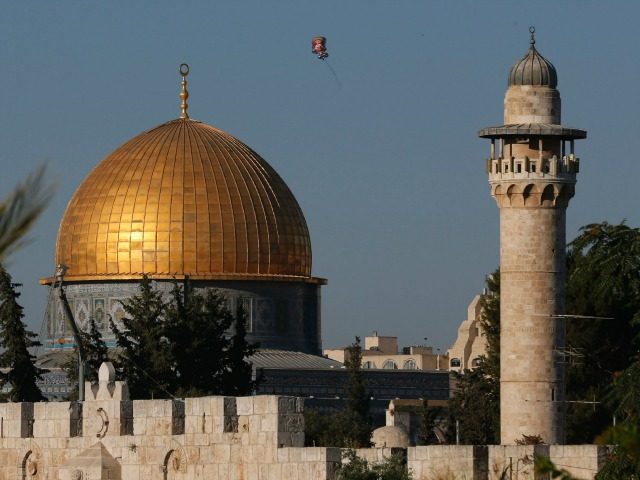TEL AVIV – Following the Temple Mount terror attack, a longstanding ban on members of Knesset visiting the holy site is likely to be extended, an MK said Sunday.
With the outbreak of the latest wave of Palestinian violence in the fall of 2015 – which Palestinians dubbed the Al-Aqsa Intifada – Prime Minister Benjamin Netanyahu barred Jewish and Muslim lawmakers from visiting the Temple Mount complex.
The ban was due to be lifted next week for a seven-day trial period, but after three Arab-Israeli gunmen shot and killed two Israeli police officers on Friday morning, a spokesman for MK Yehuda Glick (Likud) said it “appears likely” that the plan to remove the ban will be delayed. The Prime Minister’s Office said that it had not come to a final decision.
The last time the complex was closed was when Glick himself was shot in an assassination attempt in 2014. Glick has been a staunch advocate of the right of Jews to visit and pray on the Temple Mount, something that is forbidden at the moment in accordance with Israel’s agreement with the Jordanian Islamic Waqf Trust that oversees the compound. Glick spearheaded a campaign to have the ban lifted, appealing to the High Court of Justice. The subsequent proposal would allow for MKs to visit the Temple Mount provided they adhere to 14 directives, including giving advance notification and arriving without a media entourage.
The compound was closed for visits on Friday and Saturday following the attack. Prime Minister Benjamin Netanyahu announced on Saturday night that the site would be gradually opened to Muslim worshipers at noon on Sunday.
“I held a discussion with the top security leadership, and I instructed that metal detectors be placed at the entrance gates to the Temple Mount. We will also install security cameras outside the Temple Mount, in a way that gives us almost complete control over what goes on there,” Netanyahu said in a statement on Saturday night.
News of the closure drew an immediate backlash from all over the Arab world, as well as sparking riots in Jordan led by the Jordanian Waqf trust that oversees the compound and the Al-Aqsa Mosque there. Jerusalem’s chief mufti, Mohammad Hussein, warned Israel against “any harm to Al-Aqsa.”
The partial opening on Sunday was met with protests at the new metal detectors established at the entrance to the site. Only 200 Muslims entered the site when it was reopened at noon instead of the expected thousands. Mahmoud al-Aloul, deputy head of Palestinian Authority President Mahmoud Abbas’s Fatah faction, told Palestinian media that the presence of metal detectors at the holy site was “illegitimate.”
Glick said Friday’s terror attack was no reason to keep the ban in place.
“I cant see a reason why it shouldn’t be opened. I think the decision to stop MKs entering the Temple Mount was a mistake in the first place,” Glick told the Times of Israel on Sunday. “If the Temple Mount is not opened for MKs, a new status quo will be determined where MKs are not allowed to go on the Mount at all – a status quo that is very dangerous.”
The three gunmen, who came from the Israeli-Arab town of Umm al-Fahm but did not belong to any terror group, shot and killed Druze police officers Haiel Sitawe, 30 and Kamil Shnaan, 22. They fired several rounds before running back towards the Dome of the Rock where police officers shot them.

COMMENTS
Please let us know if you're having issues with commenting.